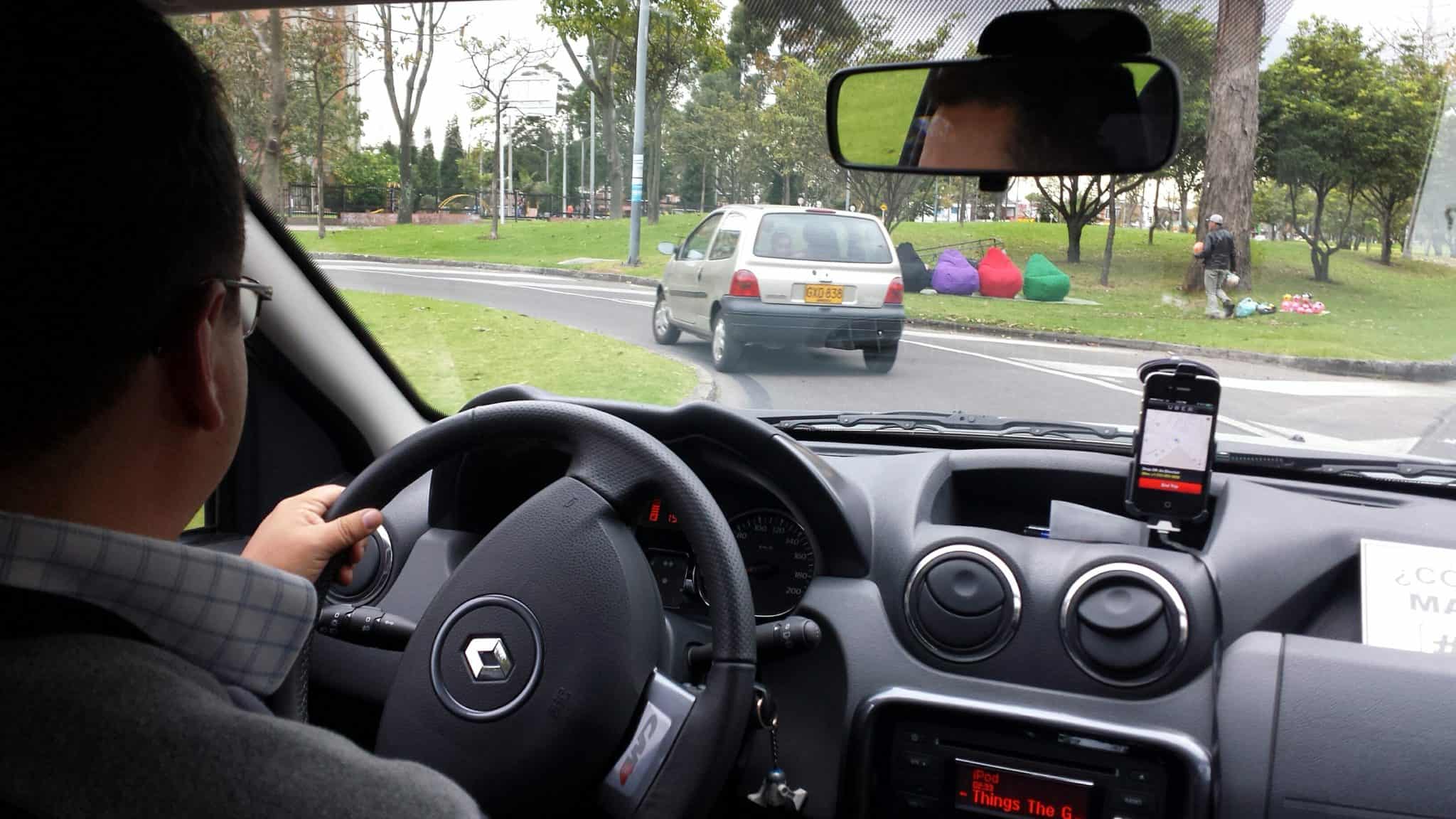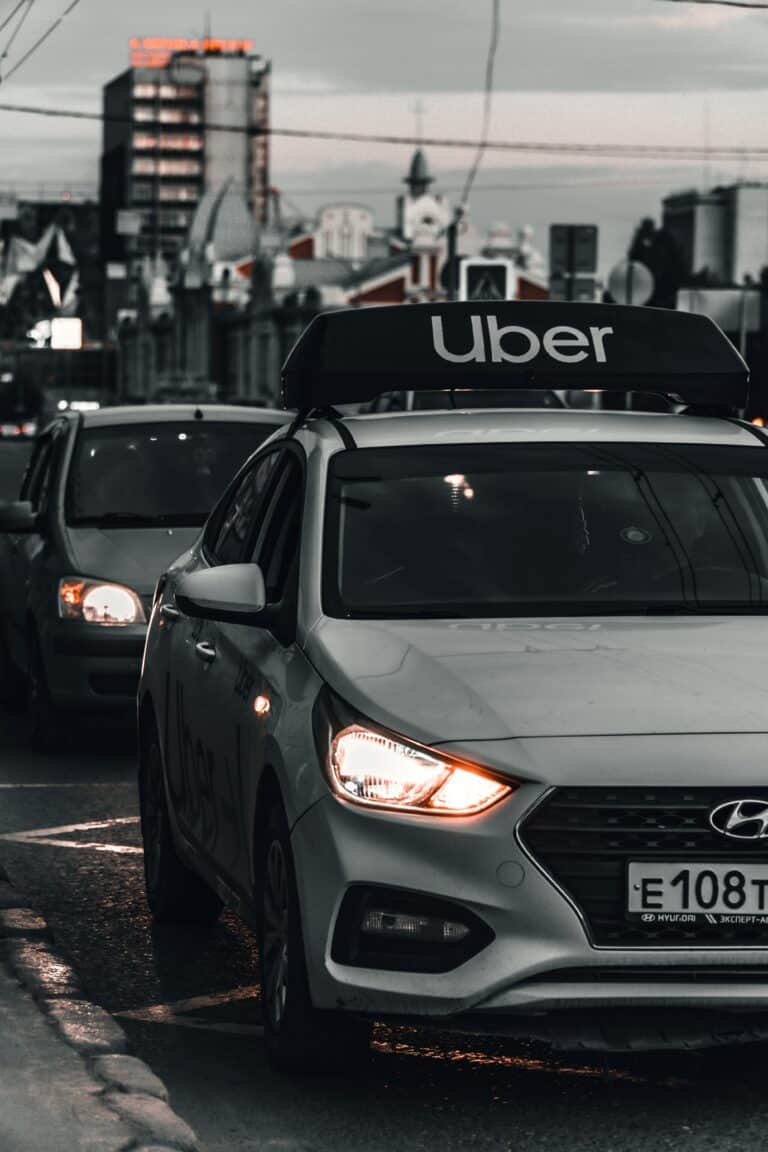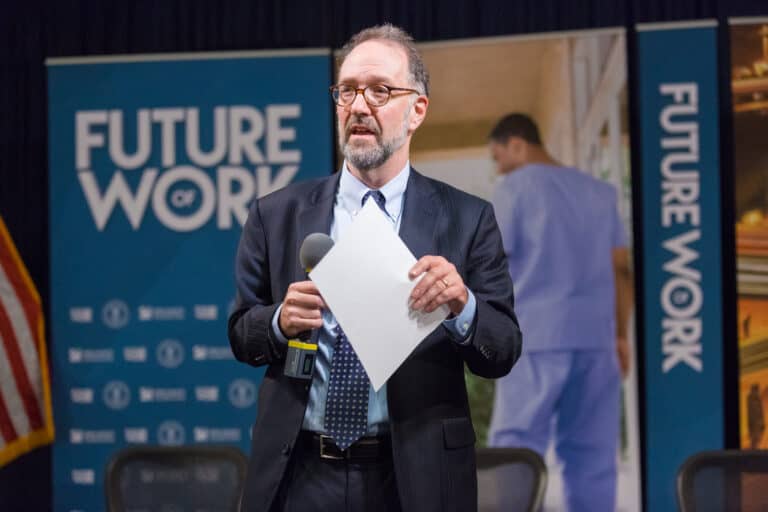
Charlotte Garden is the Julius E. Davis Professor of Law at the University of Minnesota Law School. She is a co-author of casebooks in Labor Law (with Richard Griffin, Joe Slater, and Anne Marie Lofaso), and Employment Law (with Mark Rothstein, Lance Liebman, Kimberly Yuracko and Paul Secunda). Professor Garden’s scholarly articles have appeared in the University of Pennsylvania Law Review, Emory Law Journal, Boston University Law Review, George Washington Law Review, Fordham Law Review, and the William & Mary Law Review. In 2019, Cambridge University Press published Professor Garden’s co-edited volume Cambridge Handbook on American Labor Law: Reviving American Labor for a 21st Century Economy (with Richard Bales).
Last month brought news that some ride-hail drivers and their lawyers have adopted a new strategy for pursuing their misclassification-related claims against Uber and Lyft: filing for individual arbitrations in massive numbers. This came to light when attorneys for a group of Uber drivers filed a petition in federal district court in California, seeking an order compelling Uber to pay the initial filing fees of $1,500 per driver necessary to proceed with an astounding 12,501 individual arbitrations. Lyft faces a similar petition filed on behalf of 3,420 drivers.
As many readers of this blog will already know, individual arbitration is a key part of Uber’s and Lyft’s practice of treating drivers as independent contractors while also exercising a considerable degree of control over how they do their jobs. That combination would ordinarily give rise to class or collective litigation aimed at testing whether the drivers are actually misclassified employees who are entitled to protection under a list of federal, state, and local laws. And indeed, drivers have attempted class actions against both companies – but individual arbitration clauses that they include in their driver contracts have either lowered the settlement value of these cases or derailed them altogether. (Drivers for both companies have a short window after they first sign up during which they can opt out of arbitration, though few exercise that option.)
A significant draw of individual arbitration clauses for companies is that they make it difficult for employees (or consumers) to vindicate their rights in relatively low-dollar-value cases that would otherwise be ripe for aggregated litigation. Hiring a lawyer to undertake individual arbitration of a single wage-and-hour or reimbursement claim on behalf of a low-wage worker rarely makes financial sense, and few workers will have the time or willingness to undertake pro se arbitration. As a result, many employees faced with individual arbitration clauses abandon their claims, leading to windfalls for companies that break the law or that operate close to the line. Recent research by Cynthia Estlund bears this out, showing that there are vast numbers of “missing arbitrations,” which are “potential claims that are subject to arbitration but never enter any adjudicatory process.”
But, as the 12,501 Uber drivers and 3,420 Lyft drivers who have demanded arbitration have brought into focus, the economics of individual arbitration are a double-edged sword for companies: if large numbers of workers do attempt to vindicate their rights instead of abandoning them, the result is an expensive, inefficient morass for companies, too. In addition to hiring counsel, companies typically bear the forum costs associated with arbitration, including the filing fee, the arbitrator’s fees and travel costs, and incidentals such as the cost of renting the conference room in which the arbitration is to take place. Attorneys in one class action against Uber estimated that those costs could run Uber more than $7,000 per day; if that is right then total forum costs for even a simple arbitration could easily top $10,000.
One “solution” for employers might be to insist in their arbitration clauses that they and their workers split the arbitral forum costs. And at least some of Uber’s arbitration agreements have stated in part that “[i]f under applicable law Uber is not required to pay all of the Arbitrator’s and/or arbitration fees, such fee(s) will be apportioned between the parties in accordance with said applicable law.” But that strategy has its flaws. First, both AAA and JAMS impose limits on the forum costs that drivers could be required to pay. (This is true whether the services ultimately treat driver arbitrations as employment or consumer arbitrations; there could be some friction over which is appropriate given that the dispute between the drivers and the companies concerns whether drivers are employees or platform users.) Second, the Supreme Court has left open the possibility that “filing and administrative fees attached to arbitration that are so high as to make access to the forum impracticable” might render an arbitration agreement – or at least its cost-sharing provision – unenforceable. I don’t know whether the Supreme Court will ultimately insist on even this minimal backstop against corporate abuses, and if it does whether it will cover arbitration clauses that allow opt-outs – more on this in a future post. But at least in 2015, this possibility must have seemed significant enough to prompt Uber to pledge to pay the full costs of arbitration for the plaintiffs in Mohamed v. Uber. Relying on that pledge, the Ninth Circuit then wrote that “[s]o long as Uber abides by this commitment, the fee term in the arbitration agreement presents Plaintiffs with no obstacle to pursuing vindication of their federal statutory rights in arbitration.”
Still, it seems that both companies plan to fight the drivers’ petitions. Alison Frankel reports that Lyft and Uber are taking the position that the law firm behind the arbitration effort, Keller Lenkner, is conflicted out of representing drivers; apparently one of Keller’s lawyers represented the Chamber of Commerce in its Uber- and Lyft-backed lawsuit challenging Seattle’s ride-hail collective bargaining ordinance. In addition to suing Keller in a separate civil case, Lyft reportedly demanded that the firm identify alternate counsel that would proceed on drivers’ behalves in the event of its disqualification.
Assuming that this issue is resolved and Keller proceeds with the representation, it is doubtful (and maybe near-physically impossible) that the result will be 15,000 individual arbitrations. If two arbitrations took place each and every day of the year, it would still take more than 20 years to complete 15,000 cases; this might be a good full-employment scheme for lawyers, but there are obvious downsides for both the drivers and the companies. Settlement could be the next step – in fact, Uber has reportedly tentatively agreed to settle another group of arbitrations, which were filed by O’Connor v. Uber lawyer Shannon Liss-Riorden, for eleven cents per mile driven.
One reasonable approach for the Keller Lenkner arbitrations might involve a bellwether process; the two sides might begin by arbitrating a few representative cases, which could lead to settlement in other cases. But apparently negotiations with Uber over just such a process began, but broke down. In their petition, the Uber drivers state that they proposed nine bellwether arbitrations to be followed by mediation, while Uber proposed four arbitrations and no mediation, and this gap was un-bridgeable. I read this impasse as brinksmanship – if each side believes the other is less enthusiastic than it about embarking on thousands of individual arbitrations, it is unsurprising that negotiations over an alternative process would run aground. In her dissent in Italian Colors, Justice Kagan excoriated the majority for allowing individual arbitration to become “a foolproof way of killing off valid claims.” Uber’s and Lyft’s reliance on individual arbitration clauses are textbook examples of Kagan’s prediction come to life. And while it is gratifying to see thousands of drivers call the companies on their bluffs, their experience so far underscores that the real answer is for Congress to restore the rights of workers and consumers to band together to litigate their claims.









Daily News & Commentary
Start your day with our roundup of the latest labor developments. See all
March 3
In today’s news and commentary, Texas dismantles their contracting program for minorities, NextEra settles an ERISA lawsuit, and Chipotle beats an age discrimination suit. Texas Acting Comptroller Kelly Hancock is being sued in state court for allegedly unlawfully dismantling the Historically Underutilized Business (HUB) program, a 1990s initiative signed by former Governor George W. Bush […]
March 2
Block lays off over 4,000 workers; H-1B fee data is revealed.
March 1
The NLRB officially rescinds the Biden-era standard for determining joint-employer status; the DOL proposes a rule that would rescind the Biden-era standard for determining independent contractor status; and Walmart pays $100 million for deceiving delivery drivers regarding wages and tips.
February 27
The Ninth Circuit allows Trump to dismantle certain government unions based on national security concerns; and the DOL set to focus enforcement on firms with “outsized market power.”
February 26
Workplace AI regulations proposed in Michigan; en banc D.C. Circuit hears oral argument in CFPB case; white police officers sue Philadelphia over DEI policy.
February 25
OSHA workplace inspections significantly drop in 2025; the Court denies a petition for certiorari to review a Minnesota law banning mandatory anti-union meetings at work; and the Court declines two petitions to determine whether Air Force service members should receive backpay as a result of religious challenges to the now-revoked COVID-19 vaccine mandate.